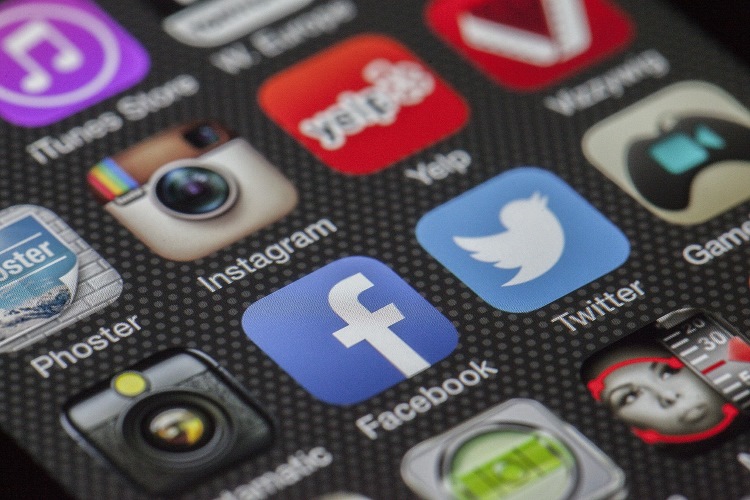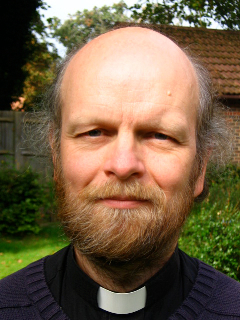Opinion Column

Should we blame Social Media for all the bad stuff?
Amid all the current condemnation of Social Media companies for some of the content they publish, Andrew Bryant wonders whether we should all take a share of the blame.
Barely a week goes by without another story in the news critical of social media companies. Most recently there has been much criticism of Instagram linking its display of graphic images to the suicide of a 14-year-old girl’s suicide. There are regular stories of online bullying of children and young people, trolling of MPs and celebrities via Twitter and Facebook as well as reports of the negative impact of mental health from spending too much time on such sites.
Questions have been raised as to whether social media has been inappropriately used to influence the results of elections. There have been concerns about the way such companies use our personal data. And despite the size of these companies, surprise has been expressed at how little tax they pay.
We are wary of these large companies precisely because of their global reach. The fear is that they are beyond the control of regulators and have become a law unto themselves.
But for all these concerns the use of social media continues to grow. And there is much to celebrate about the online world, including the way it can help family and friends stay in touch, aid the sharing of news and information and help isolated people feel connected. The world of social media makes it much harder for oppressive regimes to control their population and, thanks to the power of social media, light can be shed quickly and widely on things governments and companies would prefer not to be noticed.
There is no doubt, however, that with the right will, these companies could do much more to remove graphic, racist, sexist, hate-fuelled content. Given the way social media feeds already shape the adverts we see based on our browsing history, we know they have the means to respond to the content of what is being put up online.
The cry that the online world should be free from censorship is a red herring. Societies have always acted to set moral standards and to keep people from harm. There is no justifiable reason why the online world should be an exception to this. It is always a difficult call to know what should or should not be censored, but it is already clear that a complete free-for-all is causing harm, and action is long overdue.
However, before we dump all the blame on the social media companies, there is a need for a pause. It is not the social media companies that post all this hostile and negative information. Yes, they could do more to take it down quickly, but they are not the ones putting it up. All social media does is to amplify the behaviour of human beings, both the good and the bad.
Then, of course, we are tempted to say that the bad stuff is not done by people like us. The truth is that those who misuse social media are not people with horns and forked tails. They are people who look a lot like us, may live in our street, shop in the same supermarket, watch the same kind of television as us.
We live in an angry and disgruntled age. The way people react if someone accidentally bumps into them in the street, the way that motorists shout at cyclists (and vice versa), the way that shop assistants, train staff, traffic wardens, even nurses get abused should give us cause for concern.
It happens, too, in churches: the way people gossip about each other, clergy who bully members of their congregations and members of congregations who bully their clergy. People feel free to speak in strong language about their opinions and can be very dismissive and judgemental of those who disagree with them or hold a different perspective.
We need to look deep into our hearts and ask if we are so very different from the internet trolls. Are all our interactions with those around us, especially those who are different from us, kind, gentle and caring, free from judgement, gossip or bitterness? Is our communication all it should be? Does the way we speak, write, tweet truly reflect the best values of the Kingdom of God? St James in his Letter warns of the danger that the tongue can do – can we honestly say we have properly heeded his warnings?
Yes, the world of social media does need to clean up its act, but in the end, it is only making visible the way human beings interact one with another – good or ill. Better online and offline communication begins with each of us taking responsibility for the way we communicate. Words can hurt or heal. When all our words are weighed in the balance, will they have healed more than they have hurt?
The above image is courtesy of https://pixabay.com/
 The Revd Andrew Bryant is the Canon for Mission and Pastoral Care at Norwich Cathedral. He was previously Team Rector of Portishead, Bristol, in the Diocese of Bath and Wells, and has served in parishes in the Guildford and Lichfield Dioceses, as well as working for twelve years with Kaleidoscope Theatre, a charity promoting integration through theatre for young adults with Down’s Syndrome.
The Revd Andrew Bryant is the Canon for Mission and Pastoral Care at Norwich Cathedral. He was previously Team Rector of Portishead, Bristol, in the Diocese of Bath and Wells, and has served in parishes in the Guildford and Lichfield Dioceses, as well as working for twelve years with Kaleidoscope Theatre, a charity promoting integration through theatre for young adults with Down’s Syndrome.
You can read Andrew's latest blog entry here and can follow him via his Twitter account @AndyBry3.
The views carried here are those of the author, not of Network Norwich and Norfolk, and are intended to stimulate constructive debate between website users.